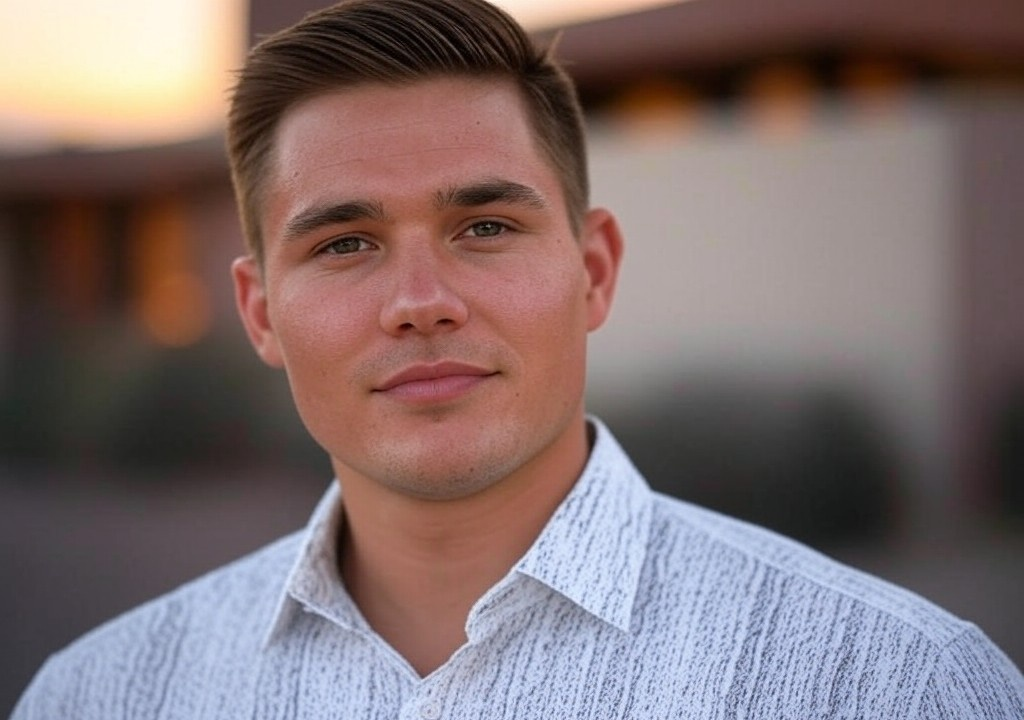There’s something about rolling your suitcase across an airport terminal at 5 a.m. that makes you question everything: your packing choices (why did I bring three pairs of boots for a tropical getaway?), your life choices (remember when you thought a red-eye flight was a great idea?), and, most importantly, who you really are. Travel has a way of cracking you open like a piñata, spilling out unexpected truths about yourself—and, let me tell you, not all of them are candy-filled.
Having ventured far from my comfort zone (and my beloved Sonoran Desert), travel has taught me more about myself than a dozen personality quizzes combined. Here’s the kicker: What I’ve learned applies just as much to navigating relationships as it does to navigating a rental car in Los Angeles traffic. So, buckle up—you’re about to embark on a journey of self-discovery, complete with turbulence, detours, and plenty of bad souvenirs.
Wanderlust Is Code for “I Crave Growth”
I used to think people traveled to escape their everyday lives. And sure, maybe some do. But for me, booking a plane ticket isn’t about running away—it’s about running toward something. Toward growth, discomfort, and, okay, sometimes a plate of authentic street tacos.
Travel—especially the kind involving questionable Wi-Fi and one too many layovers—forces you to stretch yourself in ways you didn’t sign up for. Here’s a quick example: I once rented a car in Italy, not realizing that my ability to “kinda read Spanish menus” wouldn’t translate to deciphering Italian road signs. I got lost, naturally. But in that winding, pasta-scented chaos, I also learned that I have a knack for staying calm under stress.
The connection to relationships? When you intentionally step into discomfort—whether it’s trying to make sense of Google Maps in rural Tuscany or having an honest conversation with your partner—you grow. It might not be glamorous, but growth rarely is.
Takeaway:
Embrace the moments that challenge you, in travel and relationships. Growth happens in those in-between spaces where things don’t go as planned.
Patience Is More Than a Virtue—It’s Survival
Let’s talk about patience. Nothing will test yours like standing in a foreign customs line at the end of a 10-hour flight while the family in front of you argues loudly about snack choices. Or when your train in Germany leaves exactly on time because apparently “two minutes early” doesn’t translate to “wait for Nate to board.”
But here’s the thing: Being impatient doesn’t make the line move faster, the train stop for you, or your checked luggage appear magically on the carousel (believe me, I’ve tried). Travel has taught me that the art of patience isn’t about waiting—it’s about how you wait.
This lesson mirrors relationships perfectly. Your partner will annoy you at times. They’ll take forever to pick a restaurant, insist on rewashing the dishes you just cleaned, or forget your “one-thing-not-to-mention-in-front-of-my-mom” rule. Like travel, love requires the grace to stick with it when things don’t align perfectly.
Pro Tip:
Breathe. Adjust your expectations. Pack snacks.
The Uncomfortable Truth About Comfort Zones
Picture this: You’re in Japan, standing in front of a conveyor belt sushi restaurant with a menu that’s entirely in kanji. A tiny voice inside whispers, “Nate, just find a burger place—you’ll thank me later.” But the louder voice, the one I’ve trained myself to listen to, says, “Why not?”
Here’s what travel has hammered into my head: Comfort zones are cozy, but nothing memorable ever happens there. I’ll always remember fumbling through food orders in Tokyo and learning (the hard way) how to bow appropriately. Would I have preferred the simplicity of my favorite Scottsdale steakhouse? Maybe. But deep down, the thrill of exploration changed me in a way that another medium-rare filet never could.
Turns out, the same goes for relationships. Staying in your own bubble—never taking risks, never leaning into vulnerability—might keep things “safe,” but it won’t bring you closer. It’s only when we step out, try the weird sushi despite not knowing what’s in it, and lean into the unknown that real connection happens.
Reminder:
When faced with the decision to stay comfortable or take a risk—take the risk. The worst that can happen? A funny story and maybe some regret over raw sea urchin.
You Learn Who You Are at Your Worst
It wasn’t arriving at the wrong airport in Singapore or scratching the rental car in Albuquerque that taught me emotional resilience. Nope. My true character showed itself when I got food poisoning in Peru—halfway up the mountain on the way to Machu Picchu. I was hot, cold, and questioning my life choices, all while rocking a dubious poncho I’d snagged from a gift shop.
And yet, when everything in me screamed to quit, I surprised myself. I kept going. Slowly, awkwardly, poncho flapping in the wind—but I made it.
If there’s anything I’ve learned from travel, it’s this: You won’t always be at your best, and that’s okay. The real question isn’t “Will you have bad days?” (spoiler: yes), but rather, “Who will you be when they hit?” Love works the same way. How do you show up for your partner—or yourself—on the hard days? Who are you when you’re hungry, stressed, or arguing about whose playlist will survive the road trip?
Thought for the Road:
Resilience is built in the trenches—whether that’s a mountain trail in Peru or your third argument this month about whose turn it is to do laundry.
Connection Happens When You’re Fully Present
I had this moment in Patagonia—standing in front of jagged, snow-capped mountains, my phone dead because I ignored the low-battery warning for “just one more photo.” At first, I panicked. No maps? No selfies? No way to share this moment with my Instagram followers?!
But then, something magical happened: I looked up. I heard the rustle of the trees and the crunch of the snow. I noticed the way the mountains seemed impossibly close and far all at once. And for the first time in days, I wasn’t thinking about how I’d caption this later or whether I’d remembered to pack extra socks. I was just... there.
When it comes to love, this might be the biggest lesson travel has taught me. Connection doesn’t happen when you’re distractedly refreshing emails or mentally rehearsing what you’ll say next. It happens when you lock eyes, tune in, and let everything else fade away.
Challenge:
Put down your phone. Look up more—at the peaks, at the sunsets, and most importantly, at the people you care about.
Final Boarding Call
At its best, travel is a mirror. It shows us who we are, what we’re capable of, and how much we still have to learn. It pushes us to grow through discomfort, teaches us patience when the flight’s delayed, and reminds us of the beauty in stepping outside our comfort zones. Whether you’re halfway across the world or halfway through a tough conversation with someone you care about, these lessons apply.
So, my advice? Pack light, embrace the detours, and remember that whether you’re exploring a new city or deepening a relationship, the journey is always worth it.
Because, as travel (and life) have taught me, the best stories never start with, “Everything went according to plan.”




















